Notice how I tagged them and also how I included hashtags for wider reach for their post. Here are my top strategies for growing your business with off-page SEO, starting with the absolute basics and moving up to some techniques that require a bit more skill. With so much competition in the digital marketing world, it’s important to stay on top of what works and what doesn’t.
Set Up Brand Tracking
For example, social media marketing is not off-page SEO (nor are social shares a known ranking factor). But sharing content on social media can indirectly lead to improved rankings since more shares lead to more organic traffic which can lead to more backlinks. Off Page SEO is an important part of any successful SEO strategy. Backlinks, Digital PR, content marketing, reviews, brand mentions, etc. everything helps you to boost SEO rankings, trust, and authority. In today’s competitive digital landscape, businesses must implement strategic techniques to stand out in search engine results.
In the meantime, you can use more active link-building BHS Links techniques like guest posting. Your website can’t have these elements with on-page SEO alone because search engines strongly rely on authority through off-page SEO factors. Secondly, you will need a dedicated team of link builders, social media marketing managers, and brand partnerships managers. This includes things like blog comments, user-submitted guest post articles, ad banners, and other links included as part of a paid collaboration.
Use clean, organized URLs — like the first example above — to improve your site’s architecture and help you rank higher in relevant search results. That said, it’s an on-page SEO basic practice to include your target keyword in your URLs. Look for issues like missing meta descriptions, slow load times, and broken links. The website SEO checker evaluates keyword density, ensuring your target phrases like “free SEO website checker” and “SEO check for my website” are used effectively.
Basically, if your content hits all three marks here, you are more likely to gain the attention (and links) of others. Brand mentions and valuable referral traffic increase your brand’s visibility. When this is paired with a digital footprint that extends beyond what your competitors are doing, you will see great results from an off-page SEO strategy. At Tops Technologies, we are committed to helping businesses and individuals master SEO best practices to build stronger, more effective online presences. In this article, we’ll break down the fundamental components of on-page SEO — Meta tags, Content Optimization, and Internal linking — and how you can leverage them for success. Another way to improve your site’s off-page SEO is to ensure your business is listed correctly in directories and search engines.
What Is Off-Page SEO? A Guide to Off-Page SEO Strategy
New visitors come to your site, genuinely interested in what you offer. This naturally leads to higher engagement and better conversion rates. Focus on getting high-quality backlinks from reputable websites. These off-page SEO tactics send strong trust signals to users and search engines. On-page SEO is a type of search engine optimization (SEO) that uses on-site optimizations to improve a page’s rankings in relevant search results.
Choose the platforms to publish the podcast, like YouTube, Spotify, and Apple Podcasts. Content marketing serves as a cornerstone of effective off-page SEO through six main techniques. When executed effectively, off-page SEO creates a ripple effect that influences multiple aspects of online visibility. Each detail, from your location’s specifics to your operating hours’ nitty-gritty, plays a part in your business’s narrative. The “link in bio” format works great for personal brands, agencies, and even e-commerce pages on Instagram. You can link directly to your web pages on other platforms like LinkedIn or Facebook.
What should you look for in your off-page SEO tools?
Firstly, it allows you to tap into a new user that aligns with your target demographic. Secondly, it lets you secure backlinks from authoritative websites when your content gets published elsewhere. Lastly, guest blogging can boost your website’s traffic, a crucial factor in search engine rankings.
Off-page SEO refers to techniques you can use to improve the ranking of a website on the search engine results pages (SERPs). It involves SEO tactics beyond website content like link building, social media marketing, brand mentions, and online reviews. The best off-page SEO tools provide comprehensive data, analysis, and implementation capabilities for managing external signals that influence search rankings. Off-page SEO tools enable efficient monitoring, optimization, and growth of backlinks, brand mentions, social signals, and other off-page factors that collectively determine website authority.
- Even though they don’t pass page-rank, you’ll still benefit from the contextual relevance of the content in which your brand is mentioned.
- According to Google, title tags still “help a lot” with your rankings.
- As we all know, taking part in link schemes or having a lot of low-quality backlinks can negatively affect your website’s SEO rankings and occasionally result in a penalty.
For our campaign, we’ll enter everything related to content, link building, content marketing, digital marketing and partnerships at all seniority levels. As an example, we will be running an anchor text link building campaign for our guide on how to increase organic traffic. The most important off-page SEO activities include link building, online reviews, and local SEO. On-page SEO is everything you do to your own website in order to improve its position in search engine results. When you think of most of the “basic” parts of search engine optimization – things like keywords, HTML tags, page titles and mobile friendliness – you’re thinking of on-page SEO.
